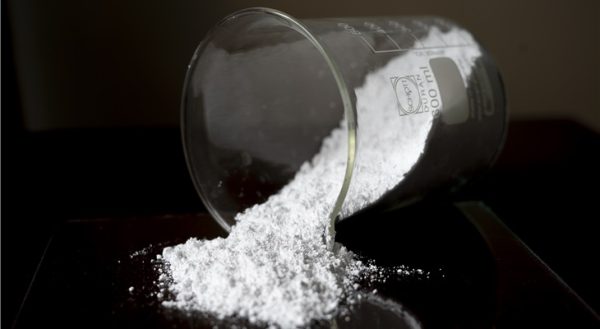
With the changes in related application fields and downstream industry demands, the development model of the calcium carbonate industry has gradually shifted to innovation-driven, ushering in a new round of industrial innovation, from the initial fine powders mainly d97=74mm (200 mesh) and d97=45mm (325 mesh) to ultrafine powders and ultrafine active powders, with whiteness reaching more than 99, and better fluidity, dispersibility and compatibility.
Ultrafine is an important way to improve the quality of calcium carbonate, mainly including dry production and wet production. Ultrafine heavy calcium carbonate plays a key skeleton role in plastic products with its fine particle size and excellent dispersibility. With the increase in market demand for ultrafine powders and the improvement of quality requirements, the proportion of ultrafine heavy calcium carbonate in the total output continues to increase.
PVC calendered film: Ultrafine calcium carbonate is applied to PVC calendered film, which can improve its rigidity, significantly increase the film stiffness, and facilitate the flat curling of the film; by improving the surface roughness, the surface tension of the composite material is increased, and excellent adsorption is given, so that it has good printing and inkjet performance.
Plastic masterbatch: Ultrafine calcium carbonate is applied to filling masterbatch, plastic masterbatch and functional masterbatch industries, which can improve its heat resistance temperature, improve the processing performance of plastics, reduce the viscosity of plastic melts, make it easier to flow and fill, improve its dispersibility, and give the material excellent mechanical properties.
Pipe profiles: Ultrafine calcium carbonate products have an irreplaceable position in the formulation system of pipes and fittings, and can effectively improve the ring stiffness, mechanical properties and gloss of pipes. Adding it to PVC profiles can give it better dimensional stability, higher impact strength, better surface gloss and shorter production cycle.
With the rapid development of new industries, the demand for functional materials and special fillers such as functional coatings, special rubbers, modified plastics, electronic ceramics, biomedicine, environmentally friendly materials, film materials, luminescent materials, antibacterial materials, flame retardant materials, etc. has grown rapidly. Ultrafine heavy calcium carbonate has begun to extend to functionalization, and the research and application of coordinated modification with titanium dioxide, silicon dioxide, rare earth, clay, fiber, and carbon materials has gradually matured, expanding from a filler that wins by quantity to a powerful booster or core of high-end powder materials for fine chemicals.
